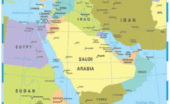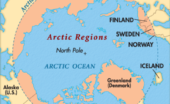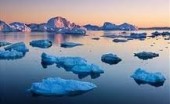Molly Minturn - My family is heartbroken to share that my father died in surgery on Monday, Feb. 10. It…
Wednesday Night #1709
Written by Diana Thebaud Nicholson // December 3, 2014 // Wednesday Nights // Comments Off on Wednesday Night #1709
Jean Bélivau R.I.P.
Jean Béliveau, beloved Canadiens hockey legend, dead at 83
Le Gros Bill, hockey hero to generations, remembered for sportsmanship, dedication to fans
Dave Stubbs: Montreal Canadiens hockey legend Jean Béliveau dies
What an onslaught of bleak news bombards us every day. Or does it simply appear to be so because this is the dreariest, light-deprived, period of the year?
It doesn’t make matters much better that the various ‘authorities’ cannot agree on what kind of winter we are/will be facing. Do you believe the Old Farmer’s Almanac: ‘T-Rex’ of winters in store for Canada? Our friends in Alberta probably do. Likewise, the neighbors in Buffalo. Obviously, we would prefer Environment Canada’s Winter Weather Forecast which is apparently Reason To Rejoice — Canadians can expect a milder and shorter winter than last year. Say goodbye to the reign of the polar vortex. Whichever proves to be true, remember “weather is not climate”.
UN climate talks begin as global temperatures break records
The two weeks of discussions have started amid record-breaking global temperatures for the year to date.
According to the US National Oceanic and Atmospheric Administration (Noaa), the global average temperature over land and ocean from January to October was the hottest since records began in 1880.
Speaking at the opening ceremony in Lima, UN climate chief Christiana Figueres said that the conference had to make history.
“2014 is threatening to be the hottest year in history and emissions continue to rise, we need to act urgently,” she told the negotiators.
A relevant headline you might have missed Eating less meat essential to curb climate change, says report and before you dismiss it, the report comes from Chatham House and the sub-head makes it very clear why we should take it seriously — Global livestock industry produces more greenhouse gas emissions than transport but fear of a consumer backlash is preventing action, says Chatham House report.
Scrooge has taken over the media.
When we open our morning news roundup, we are faced with a dilemma – which awful, depressing or merely confusing item to follow?
Israel is heading for early elections – good or bad news? The governing coalition has collapsed. Will the election be fought on the question of the controversial bill that officially defines Israel as the nation-state of the Jewish people? A poll released on Tuesday night suggested that Netanyahu’s Likud party would win the largest number of seats in the new Knesset with 22, followed by Naftali Bennett’s far-right Jewish Home with 17.
And so, it seems is Sweden [Swedish government on brink of collapse] This should make for interesting times for our OWN Anne Sophie Coleman-Honn, who took up her assignment in Stockholm in August.
Meanwhile, France’s lower house of parliament has voted to urge the government to recognize a Palestinian state, in the hope that it would speed up peace efforts after decades of conflict. And Sarko’s back – sort-of. We are glad. Despite M. Hollande’s peccadilloes, he’s really not a very interesting leader. France deserves someone more … exciting? Seems Angela Merkel is pleased – Merkel picks Sarkozy as preferred partner
In his column, Being Bad Europeans, Paul Krugman lies much of the blame for Europe’s current woes on Germany.
Why is Europe in such dire straits? The conventional wisdom among European policy makers is that we’re looking at the price of irresponsibility: Some governments have failed to behave with the prudence a shared currency requires, choosing instead to pander to misguided voters and cling to failed economic doctrines. And if you ask me (and a number of other economists who have looked hard at the issue), this analysis is essentially right, except for one thing: They’ve got the identity of the bad actors wrong.
For the bad behavior at the core of Europe’s slow-motion disaster isn’t coming from Greece, or Italy, or France. It’s coming from Germany.
Al Jazeera reports on Russia’s economic crisis, asking Is Moscow simply at the mercy of global oil prices or is its foreign policy also to blame? The ruble, has suffered its biggest one-day drop since 1998 – a sign of just how deeply in trouble the Russian economy is. A sharp fall in oil prices together with a standoff with European nations over Ukraine has created what some are calling a “perfect storm”.
The global slump in oil prices has hit hard. Oil accounts for 50 percent of the nation’s budget. And, of course, Russia is not a member of OPEC, so has no say. Mr. Putin is in Turkey, being chummy with his fellow women’s rights icon, Erdogan [see Five Things That Vladimir Putin And Recep Tayyip Erdogan Have In Common — Neither Is Going To Win Feminist Of The Year], and has announced during his visit that Moscow is dropping the proposed South Stream gas pipeline project because of opposition from the European Union. He cited the EU Commission’s reluctance to give the go-ahead to plans to supply southern Europe with gas via Bulgaria.
Attempting to avoid the globalized confusion and mayhem, we took refuge in Science, but came up against this from the Financial Times.
Hawking warns on rise of the machines astrophysicist Stephen Hawking has warned that artificial intelligence “could outsmart us all” and is calling for humans to establish colonies on other planets to avoid ultimately a “near-certainty” of technological catastrophe.
His dire predictions join recent warnings by several Silicon Valley tycoons about artificial intelligence even as many have piled more money into it. … Genetic engineering will allow us to increase the complexity of our DNA and “improve the human race”, he told the Financial Times. But he added it would be a slow process and would take about 18 years before human beings saw any of the benefits.
“By contrast, according to Moore’s Law, computers double their speed and memory capacity every 18 months. The risk is that computers develop intelligence and take over. Humans, who are limited by slow biological evolution, couldn’t compete, and would be superseded,” he said.
Reversal of the every-cloud-has-a-silver-lining theory?
While consumers have been rejoicing over last week’s OPEC decision not to cut production that has led to a welcome lowering of oil prices, there are many caveats. John Cassidy points out in The New Yorker that “perhaps the most fascinating question arising from OPEC’s decision is what impact it will have on the North American fracking industry, which is, in many ways, its ultimate target. Fearful that booming production of shale oil would lead to a permanent glut of crude, which would keep prices low indefinitely, OPEC’s members, particularly Saudi Arabia, are declaring war on the frackers, by allowing the price of crude to fall to a level at which a lot of American companies would lose money on their shale operations.” He continues, “Regardless of the exact number, there is little doubt that, if the oil price were to remain below seventy dollars a barrel for a prolonged period, some shale-oil producers would struggle, and some would eventually go out of business.” In Alberta, Premier Jim Prentice worries that plunging oil prices could crimp investment and the impact on the Alberta treasury is worrisome. The spring provincial budget banked on an average oil price of $95.22 a barrel, which has been downgraded to a yearly average of $88.88. Each $1 difference in the price of a barrel over a 12-month-period costs the province $215 million, although the decline is partially blunted by a lower Canadian dollar and a smaller price discount for heavy Alberta crude.
A related must-read The $870 billion Norwegian model
“Norway is known for several things, including its Viking roots, a singular obsession with cross-country skiing and an enormous sovereign wealth fund. Officially known as the Government Pension Fund Global (GPFG), it is currently valued at about $870 billion (U.S.). Funded by revenue generated from its offshore oil industry, the GPFG has amassed all of this wealth over the past 20 years. In comparison, Alberta’s Heritage Savings Trust Fund has around $15 billion (U.S.), despite having been set up decades earlier with the same purpose. Alberta has also produced significantly more oil than Norway during that time period.”
Bloomberg adds another dimension OPEC Squeeze on Oil Spares Renewables From Energy Turmoil
We continue to watch with fascination the antics of Veterans Affairs Minister Julian Fantino. This commentary pretty well sums up the situation: Den Tandt: Veterans Affairs Minister Julian Fantino enters the slow spiral dive We continue to be mystified by the apparent disregard for the veterans’ welfare by a government who should cherish this political base. Harper Sticks Up For Julian Fantino and now there is another storm brewing over hapless Environment Minister Leona Aglukkaq, caught reading a newspaper During Northern Food Crisis Debate. What a sad reflection on the disdain with which the parliamentarians (if we may call them such) treat Question Period. The cost of food in the North is a scandalous, but the real scandal is in the failures of the government to monitor the Nutrition North program
Now the minister faces another challenge – she will have to decide what to do about additions to the species at Risk Act in light of the latest assessment by the committee on the status of endangered wildlife in Canada (COSEWIC). It is recommended that belugas should be on the list. And that has had a dramatic impact on TransCanada Corp.’s plan to build a port terminal in Cacouna as part of its 4,600-kilometre Energy East pipeline to carry 1.1 million barrels per day of oilsands crude from Alberta to refineries in Quebec and New Brunswick. [Couillard says TransCanada should abandon plans for port terminal in beluga area – he, at least, doesn’t have a problem with making a decision].
Also in Quebec, Gaétan Barrette has apparently ‘softened’ Bill 10, but there are still some areas of concern.
For those who have not been following the sordid saga of the Foreign Account Tax Compliance Act aka FACTA, here is an instructive (and suitably depressing) piece by New York corporate lawyer Robert Morris
FATCA: Why New Tax Haven Laws are a Disaster in the Making in which he predicts that the despised FATCA presages the decline of the U.S. economy in ways that were never intended by the legislation.
Be of good cheer, it’s the season for the heartwarmers too.
Leading the pack is West Jet‘s Christmas Miracle: Spirit of Giving – bring a hankie. How do they do it every year?
And this one: WHAT A GOOD DOG!
McGill and two outstanding students received an early Christmas present (O&C Wednesday Nighters take note) — Two new Rhodes scholars come from McGill
McGill can brag about having not one, but two Rhodes scholars this year and, while they come from different backgrounds, they do share a very global vision for the world and how to solve its problems. Let them get started right away!
For the Hungarian Wednesday Nighters, this absolutely amazing story:
Stuart Little leads art historian to long-lost Hungarian masterpiece
Researcher spots Sleeping Lady with Black Vase by Robert Bereny being used as a prop in Hollywood children’s movie



